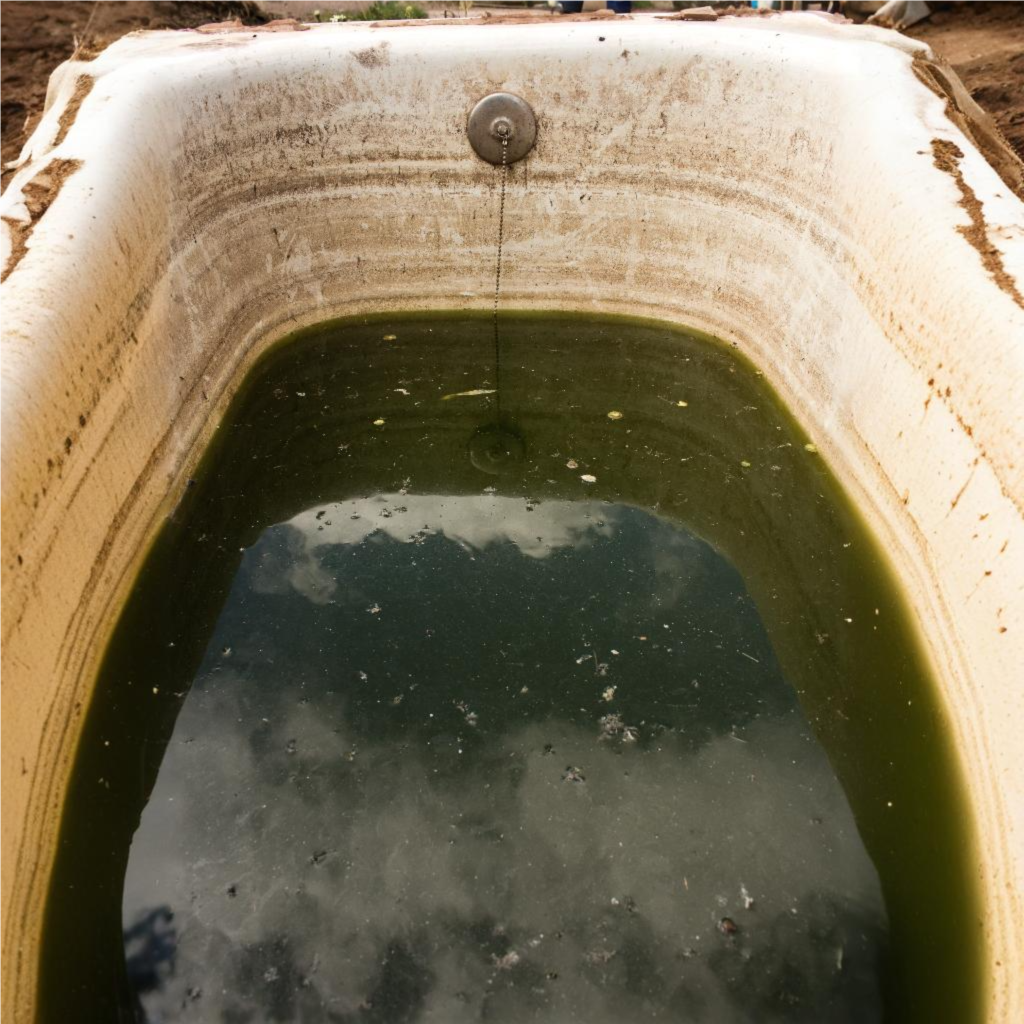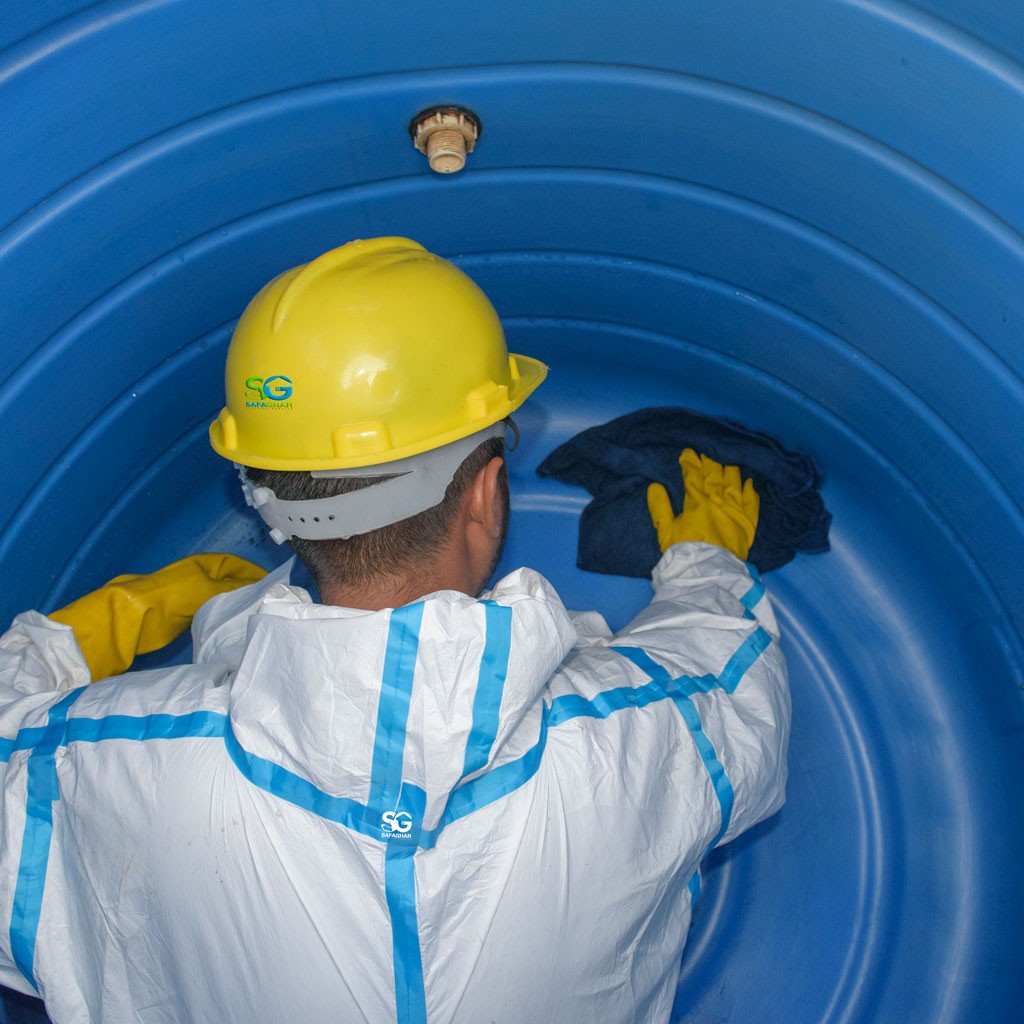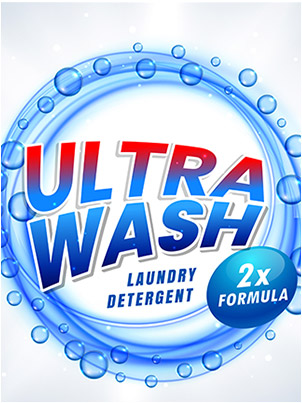10 Signs Your Water Tank Needs Immediate Cleaning to Protect Water Quality
When it comes to keeping clean water for cooking, drinking, and domestic tasks, water tanks are essential. But if they aren’t cleaned on a regular basis, they can get contaminated with dirt, algae, and dangerous bacteria, which can lower the water’s quality and endanger people’s health. In order to protect your water supply, we’ll look at the main indicators that your water tank needs to be cleaned right away in this blog post.
1. Discolored or Cloudy Water
The obvious indication that your tank is contaminated is “yellow, brown, or cloudy” tap water. Rust, the growth of germs and algae, or sediment accumulation are common causes of this tint. Using or drinking discolored water can have major health concerns; therefore, quick action is necessary.
2. Foul Odor from the Water
No smell should come from clean water. A “musty, rotten, or unpleasant smell” emanating from your water may be a sign that the tank is filled with algae, sluggish water, or decomposing biological matter. Gases that influence the smell and quality of water may also be released as a result of this contamination.

3. Unusual Taste in Drinking Water
Contamination may be indicated by any change in the “taste” of your drinking water, such as a metallic, sour, or chemical flavor. This may be the consequence of chemical reactions, sediment buildup, or bacterial growth within the tank, particularly if it hasn’t been cleaned in a while.
4. Presence of Algae or Slime on Tank Walls
If you observe “green or slimy patches” on the water’s surface or walls when you open your tank for inspection, it’s likely the result of bacteria and algae growing. It is dangerous to drink water that has algae in it because they can spread dangerous poisons and lower the water’s quality.
5. Visible Sediment and Debris in the Tank
Over time, dust, dirt, and other debris settle at the bottom of water tanks. If you observe a “thick layer of sediment,” it can mix with the water supply, clog pipes, and harm household appliances. Regular cleaning helps prevent sediment buildup and maintains water clarity.
6. Low Water Pressure or Blocked Pipes
Pipes, filters, and faucets can become clogged by sediment buildup in the tank, causing “low water pressure” or stopped pipelines. Weak water flow from taps and frequent clogs are probably caused by contaminants inside the water tank and indicate that cleaning is necessary right away.
7. Health Issues Among Household Members
Bacteria, viruses, and parasites can be found in dirty water, which can cause diseases like diarrhea, stomach infections, and skin issues. Should members of your household regularly encounter inexplicable health problems, there’s a good chance that contamination is coming from your water tank. Cleaning right away can stop these issues.
8. Water Hasn’t Been Used for a Long Time
Your water tank’s contents may become stagnant if it has been left empty for a long time, giving bacteria and algae a place to grow. Before using the tank again, it’s crucial to get it cleaned, even if the water seems clean.
9. Leaks or Structural Damage to the Tank
Dust, insects, and other impurities may seep into the tank through cracks or leaks. This may hasten the process of contamination and lower the quality of the water. It’s critical to have the tank examined and cleaned right away if you discover any structural damage.
10. Time Since Last Cleaning Exceeds 6-12 Months
Even if there are no visible signs of contamination, it’s good practice to **clean your water tank every 6-12 months. Regular maintenance ensures that bacteria, sediment, and algae don’t build up over time, keeping your water safe and clean.
Why Immediate Cleaning is Essential?
Ignoring these warning signs can lead to serious health risks and costly repairs down the line. Immediate water tank cleaning helps:
- Prevent waterborne diseases.
- Extend the lifespan of your tank and plumbing system.
- Maintain water clarity, taste, and quality.
- Ensure the health and well-being of your family.
Conclusion
Having clean water available for everyday use is mostly dependent on your water tank. You can tell when it needs to be cleaned right away by keeping an eye out for symptoms like discolored water, foul smells, sediment accumulation, or health problems. Maintaining the water’s safety for consumption and preventing contamination require routine maintenance. To safeguard your health and your water supply, make an appointment for a professional tank cleaning service as soon as you see any of these indicators.
FAQs
1. How often should I clean my water tank?
It’s recommended to clean your water tank every 6 to 12 months.
2. Can I clean my water tank myself?
Yes, for small tanks, DIY cleaning is possible, but professional services are recommended for thorough cleaning, especially for large tanks.
3. What are the health risks of unclean water tanks?
Unclean water tanks can cause gastrointestinal issues, skin infections, and waterborne diseases.
4. How long does professional water tank cleaning take?
It typically takes 2-4 hours, depending on the tank size and level of contamination.



Leave a Reply